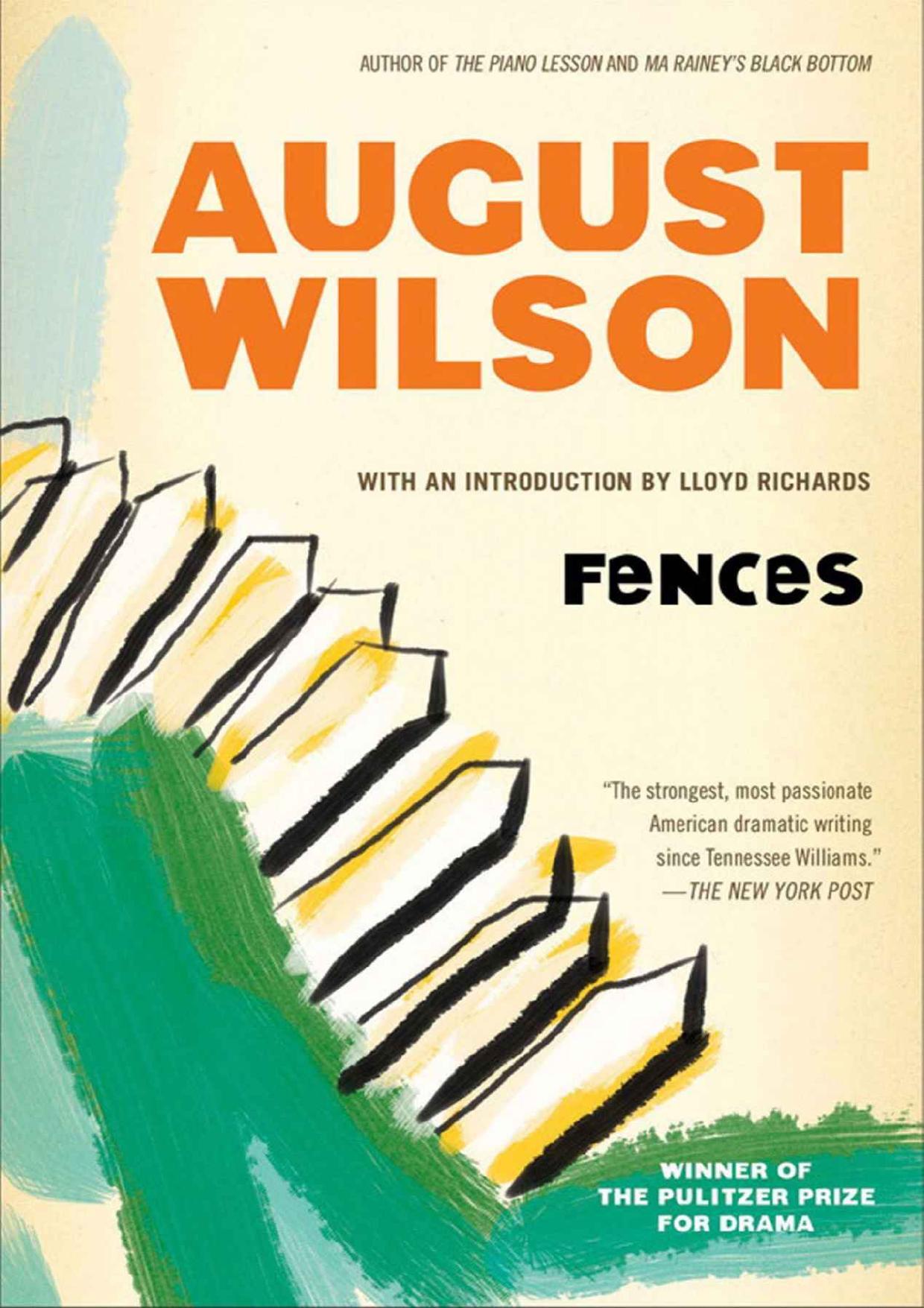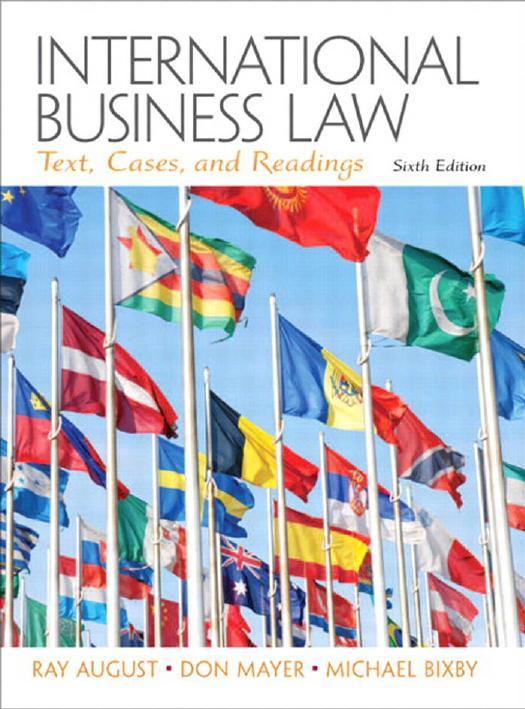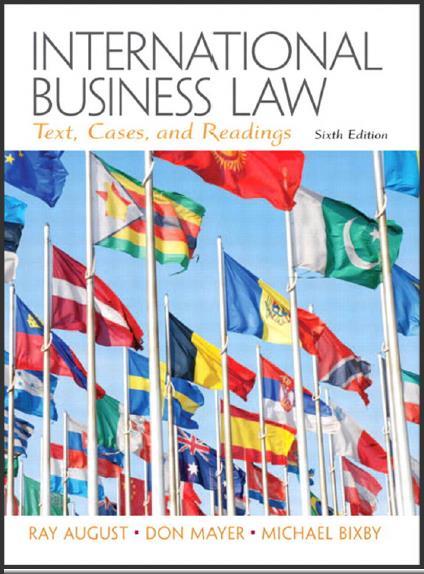Exploring the Variety of Random Documents with Different Content
"It wouldn't work," asserted Nikka. "No, to get in and have opportunity to look around for the landmarks mentioned in the Instructions we must be accepted as friends."
"It can't be done," protested Hugh at once.
"Oh, yes, it can. Jack and I can do it—with Watkins to help us."
Watkins started up from the pack upon which he had been endeavoring to appear comfortable.
"Oh, now, Mr. Nikka! I never 'eard the like! Your ludship, I protest, I do! I wasn't cut out for a Gypsy. Can you see me in such clothes? It's not decent, your ludship, for a man of my years to be going in public dressed like a pantomime."
"We're not going to make a Gypsy out of you, Watty," returned Nikka, waving him to silence. "You are going to be the innocent victim of two outrageous bandits."
"That's worse," groaned Watkins. "I'll do my duty, your ludship, and take what comes, but there's no call for all this wild talk, if I may say so, sir, and what does it all lead to? And I'm mortal sure, your ludship, there's bugs in this room. 'Adn't we better be getting back to the 'Otel, sir?"
"Sit down," commanded Hugh. "Nobody's stuck you up yet. What's your plan, Nikka?"
"Just this. When we leave here you and Watkins head for Tokalji's house. We'll follow you at a distance. You and Watty must prowl through the street as mysteriously as you can, looking up at the house, examining its approaches, all that sort of thing. Make sure the street is empty—"
"Oh, it's always empty," interrupted Hugh. "It's crescent-shaped, with comparatively few houses opening on it, a backwater."
"That helps. Now, when you get into the street look back and you will see us lurking after you. Pretend to be scared. Then we'll go after you,
knives out. Run. You get away, Hugh, but we catch Watty and throw him down—"
"Yes, it 'ad to be me, gentlemen," sighed Watkins.
"—empty out his pockets, start to cut his throat—you'd better not be wriggling about that time, Watty, or the knife might slip—and you raise a yell for the police around the corner. We change our minds, kick Watty on his way and run back. At the gate of Tokalji's house we ask for admission, claiming we fear pursuit. I think—I am quite sure—they will let us in. It is a chance we must take. They will have seen what we did, and from what you and Wasso Mikali tell me, Tokalji considers himself the chief of the local criminals. He will demand a percentage of our loot, and let it go at that."
"A nice time will be 'ad by all," commented Watkins.
"It sounds simple," I said. "But what about me?"
"You are a Frenchman, an ex-Apache and deserter from the Salonika troops. Let me do the talking. I know Gypsies. If you tell them a bold tale, and carry a high bluff, they will take you at your own valuation."
"It's a plan worth trying," agreed Hugh. "But you can't expect to stay with Tokalji forever."
"I know that. We'll do the best we can."
"Start now?"
"Wait until afternoon. That will drive your shadows insane, and they will be doubling back to the hotel on the chance of picking you up again."
We spent the balance of the time together hashing over our experiences, and horrifying Watkins by revealing to him the state of our apparel. Incidentally, we arranged to have complete changes of European clothes sent to us at the khan, so that if it became necessary we could shift rôles inside the protecting walls of the great caravanserai.
When the hour came to leave, Wasso Mikali and his young men escorted Hugh and Watkins through the courtyard, and Nikka and I followed at some distance. The Gypsies stopped in the gateway, and we strolled on alone after our friends in the direction of the Bosphorus. We had walked for upwards of an hour along the narrow lanes, up-hill and down-hill, elbowing a passage through the sordid stream of life, when from an elevation we glimpsed the sheen of water, and Hugh, a hundred feet in front of us, tossed his head as if in invitation to press on.
We accepted the hint, and as they rounded an alley-corner into a dingy lane that was over-topped midway by a wall of massive Roman construction we were close at their heels. Now the comedy began. Hugh played up in great shape. He drew a paper from his pocket, and affected to stare along the wall. He counted his steps. He looked around him fearfully. He conferred with Watkins, who manifested even more uneasiness. It was Watty who looked behind them, and spied us, peering around a flair of stonework. It was Watty, too, I am bound to say, who undertook to measure the height of the wall by contrast with his own stature—at least, he appeared to be doing so. Afterwards he denied that he had had any thought of this. He was only trying to get as far away as possible from us—we "fair gave 'im the creeps."
We slunk into the alley in as hangdog a manner as we could manage. Watty called Hugh's attention to us, as we thought, with genuine dramatic art. We heard later that he remarked: "It ain't right, your ludship, these carryings-on! I don't 'old for me own skin, but there's Mister Jack and Mister Nikka little knowing what they'll be getting theirselfs into." To which Hugh says he replied: "Steady on, old Boot-trees! England expects every man to take his beating."
Anyhow, as Nikka whipped out his knife and ran for them, Watty squeaked, and lit off with a considerable lead on Hugh. But Hugh wasted no breath. He sprinted and lunged into Watkins, knocking him against a housewall, so that we had time to catch up. And as Hugh reached the curve of the crescent-shaped street, Nikka overhauled Watkins and toppled him over with every appearance of ruthless brutality. In the next moment I added my knife to the picture, and while I menaced the poor old chap's throat, Nikka
scientifically emptied his pockets and ripped a money-belt from under his clothes.
"Oh, Mister Nikka, sir," moaned Watkins. "Not that, sir. There wasn't anything said about me belt, sir. Do be careful with that knife, Mister Jack. It's me throat, sir, if I may say so. Not the belt, Mister Nikka! Oh, dear, sir, whatever will I do about me trousers? Torn me apart, you 'ave. Ow!"
This last as Nikka gave every indication of intending to cut his heart out. There came a yell from Hugh around the corner, and Nikka bounded to his feet. Between us we hoisted Watkins to his, and propelled him from us with a couple of really brutal kicks. Collar torn, jacket scruffed and trousers unbraced, Watkins scudded for that corner like a swallow on the wing. But we did not wait to watch his exit. We took to our own heels, and headed in the opposite direction, hesitated at the far corner, and doubled back to the closed door that was buried in the high wall of Tokalji's house.
Nikka banged the thick wood with his knife-hilt.
"Who knocks?" rumbled a voice.
"Two who fear the police."
A small wicket opened.
"We want none such here." And to one within: "Be still."
"There is something to be divided," answered Nikka.
"Where do you come from?"
"Salonika—and elsewhere."
"Tziganes both?" And again to one unseen: "I said be still, little devil."
"My comrade is a Frank—but he is one of us."
A hinge creaked.
"Enter," growled the voice. "Quickly."
The crack was wide enough for one at a time, and we slid through like shadows, the open leaf slamming behind us. We stood in a large courtyard. To right and left were solid, timeworn buildings, two stories high. In front was a broken wall, partially built over by a structure of moldy brick, but there was a gap sufficiently large to reveal the Bosphorus. The court was cluttered with bales of goods and boxes and a number of men and women in Gypsy dress who were occupied in staring at us.
But we did not spare any protracted attention for them. There were two far more interesting characters close at hand. One was a stalwart, blackbearded man, with a seamed, wicked face that wore an habitual scowl. The other was a girl of perhaps eighteen, whose lissome figure set off her ragged dress like a Paquin toilette. She was very brown. Her hair was a tumbled heap of midnight, and her eyes were great glowing depths of passion. Her shapely legs were bare almost to the knee, and her flimsy bodice scarcely covered her. But she carried herself with the unconsciously regal air that I had noticed in Wasso Mikali.
She regarded me almost with contempt, but her eyes fairly devoured Nikka.
"This is the one," she cried, "he ran like that stallion we had from the Arab of Nejd, and you should have seen him strip the old Frank. He would have had the other one too if his friend had been as swift. Heh, foster-father, he has the makings of a great thief!"[1]
[1] Nikka afterwards translated these conversations for me.
But the man only glowered at us, his hand on the hilt of one of the long knives in his waist-sash.
"Be still, girl! You jabber like a crow."
"And you snarl like a wolf, Old One," she retorted. "I say I saw them."
"Somewhat of it I saw myself," he admitted, "but is that a reason for taking strangers in from the street? Who knows them?"
"Nobody," answered Nikka promptly. "Only our knives can speak for us."
"Heh, many a man has a knife that talks!" The fellow's grin was fiendish. "A talking knife! It says three words." He flashed his own in the air. "Haugh!" It whistled down in a deadly thrust. "Sss-sssrr-kk! And it goes home. Drip-drip! And the tale is told. That is all a knife can say."
And he sheathed his own, still grinning.
"That is why a sure knife is valuable," returned Nikka. "A pistol, now. That shouts aloud. But a knife only whispers, and if a knife knows but three words, how many of its masters can have that said of them?"
"You talk more than most, it seems," leered the bearded man. He was quick of wit.
"I have said what I have said," stated Nikka, folding his arms. "My comrade and I are new to Stamboul. We have heard of Beran Tokalji in many camps. In the winter we were in Paris, the great city of the Franks, and there, too, men spoke of Tokalji. A great thief, they said, and one who treated his people well."
"How do you know that I am Tokalji?" demanded the bearded man, plainly flattered by Nikka's speech.
Of course, Nikka did not know him, but he was quick to seize the opportunity and make the most of it.
"I have often heard you described around the fires. It was enough to see the way you handle a knife. 'As sure as the knife of Tokalji' is the saying all along the road from Salonika to Buda and beyond into the Frank countries."
"If you knew me and sought my help, was it wise to rob in front of my door?" countered Tokalji, but the scowl on his face was supplanted by a smirk.
Nikka affected embarrassment.
"Why, as to that, voivode, there is something to be said," he agreed. "But we saw the Franks, and their looks spelt gold, and—what would you? 'Twas a chance. Also, we thought the police would not dare to touch us here."
"That may be true," Tokalji agreed in his turn. "But there are Frank soldiers in Pera, and how if they came here to seize you?"
"But the Franks did not see us enter," said Nikka.
The girl thrust herself scornfully to the fore.
"Gabble, gabble, gabble," she mocked. "Are we old wives that we mouth over everything? These men robbed, they fled unseen, they have their loot. Foster-father, you are not so keen as you once were. Something was said of a division."
A greedy light dawned in Tokalji's eyes.
"Yes, yes," he insisted, "that is right. So you said, my lad, and if you would have shelter you must pay for it."
"So will I."
Nikka flung the money-belt, some loose change and a watch down on the ground, and squatted beside them. The rest of us did the same. The girl seized the belt, and emptied the compartments, one by one.
"English gold," she exclaimed. "This was worth taking. You are a man of judgment, friend— What is your name?"
"I am called Giorgi Bordu. My friend is named Jakka in the Tzigane camps. The name he bore in his own country is buried under a killing."
She looked at me more respectfully.
"Oh-ho, so he has killed, has he?"
"Yes, maiden. He is not a Gypsy, so with the knife—" Nikka shrugged his shoulders in deprecation—"but with his hands, and the pistol, now! You should see him when there is quick work to be done."
She began shifting the money into three equal piles.
"Did he have any papers, that Frank?" asked Tokalji abruptly.
"All that he had is there," replied Nikka.
"Humph!" The Gypsy thought for a moment. "It was strange that you attacked those two, Giorgi Bordu. I do not want them sneaking around here. They are after something that I want myself."
Nikka, sitting back on his heels, produced his tobacco-box and rolled a cigarette.
"Perhaps a strange thief and his friend might be of aid to you," he suggested.
"Perhaps they might. I don't know— You are smart fellows, I can see that. And I need men like you. But I am not alone in this. There are others, do you see? I must consult them. Still, you should be better than the two I am using just now."
"Are they Tziganes?" inquired Nikka politely.
"Of a sort. But they have lived too long with the Franks. They are not so ready as they once were, and I find they do not bring me the information I require. I make no promises, but suppose I—"
The girl screamed, and I twisted on my haunches to see that Nikka had seized her wrist.
"Let me go, pig," she hissed, and reached for her knife with her free hand; but Nikka caught that, too.
Tokalji stared at them both unpleasantly.
"What is this?" he barked. "Do you assail my people already before you are accepted a member of my tribe?"
"I am protecting your purse and mine from this little thief," answered Nikka calmly. "While we talked, she stole."
"He lies," spat the girl. "There is the money."
She stretched a slim brown foot toward the three little piles on the sunken flagstones. Tokalji drew his knife.
"If you take liberties with me I will carve out your bowels," he warned savagely.
Nikka's reply was to rake open the girl's bodice with his hooked fingers. A stream of coins tinkled on the pavement. He released her, and she leaped back out of his reach, staring down at him with a puzzled look in her eyes, entirely regardless of her nakedness.
Tokalji burst out laughing, and resheathed his knife.
"She is a rare one. You are the first to catch her so."
"And he will be the last!" she said in a low, tense voice.
A wave of color suffused her from breast to forehead. But it was from rage, not modesty. She ripped a dagger from her waist.
"Now, we shall see if you can fight or only boast," she rasped, crouching forward.
Nikka shook his head.
"I don't fight with women," he said.
"You'd better fight with her," said Tokalji philosophically, "or she will kill you. She has a swifter blade than any man of my tribe."
Nikka sank back on his haunches.
"I will not draw my knife," he said.
"Then you will die," she hissed, and charged.
I rose, and made to intervene, but Tokalji drew his knife again and came between us.
"Let her have her chance, man," he ordered in his snarling voice, and before I could pass him she struck.
But her knife was stayed in mid air. Nikka's arm darted out, his fingers clutched her wrist, there was a wrench—and the knife clattered beside the stolen coins. He forced her down by his side, picked up the knife and handed it to her. Then turned his back, and resumed his conversation with Tokalji.
"You were speaking of information you required," he said.
Tokalji eyed him in amazement.
"Do you wear the death-shirt that you care so little for death?" he asked.
"Death comes when it is ready," returned Nikka impassively. "Is a man to fear a maiden?"
"Many men fear that maiden," retorted Tokalji grimly. "Heh, you are a fighter. We will accept your comrade for whatever he is. You I know I can use. Kara!"
The girl looked at him sullenly.
"Take the strangers to Mother Kathene. Tell her to bed them with the young men."
She stood up, her half-clad Dryad's body shining a golden bronze hue.
"I am not afraid of you, Giorgi Bordu," she said, humbly fearless. "You turned aside my knife with your bare hand, and my life is yours. Will you take it?"
As she spoke, she pulled aside what scanty rags remained of her bodice, and exposed her breast for his knife. Nikka regarded her curiously, and a light I had never seen there before gleamed momentarily in his eyes.
"Your life is your own, maiden," he answered. "But remember I steal from others. Others do not steal from me."
"That is as it should be," she said. "You are a voivode, a chief. I knew you were no ordinary man when I saw you hunt down the old Frank in the street. I said to myself: 'That man is a great thief. He must be the king of a tribe.' To-night," she added royally, "I will pay ransom for my life. I will dance for you."
Tokalji emitted a peculiar gurgling sound which was intended for laughter.
"Heh, Giorgi Bordu, have you by chance been a bear-tamer?" he asked as he swept up his pile of gold and turned away.
CHAPTER XVI
THE RED STONE
Nikka and I pouched our shares of the loot we had brought in, Nikka appropriating to himself Watkins's Birmingham silver watch. The Gypsy girl never took her eyes off him as she absently refastened her tattered bodice.
"We are ready," said Nikka.
Her face flowered in an instantaneous smile.
"It is well, Giorgi Bordu. Come with me."
She led us across the courtyard to the building which fronted it on the left and was extended by the brick addition I have spoken of to shut in partially the rear of the court which abutted on the Bosphorus. A man was leaning over in the doorway, strapping up a bundle, and Kara planted her bare foot in the middle of his back, sending him sprawling. He was up in a flash, with his knife out and his face distorted with anger; but when he saw who had kicked him, the anger turned to smiles. He swung the bundle on his shoulder and swaggered off. And Kara looked at Nikka, with the expectant manner of a child who has performed a trick and expects to be applauded for it.
I grinned. I couldn't help it. But Nikka only motioned impatiently to the doorway. She caught her lip in a pout, dug her toes in the dust and affected not to understand him; but Nikka took one stride, with arm extended, and she danced away, all smiles again. Apparently, she didn't mind as long as she made him look at her.
Inside the door was a big, stone-paved hall. There were traces of carvings on the capitals of the pillars and a spaciousness that spoke of ancient glories. The stairs that led to the upper story were railed with marble and grooved deep by the tread of countless feet. But the place reeked with the squalor of a tenement. Three old women were huddled in front of a fire that blazed on an enormous hearth, and strings of onions and garlic hung from hooks in the ceiling. All around were scattered dirty piles of blankets and personal belongings.
Kara skipped across to the fireplace, and tapped the oldest of the three women on the shoulder.
"Hi, Mother Kathene," she called loudly. "Here are two strangers Beran has taken into the tribe."
The three hags tottered to their feet, and peered at us with bleared eyes.
"Strangers?" whined Mother Kathene. "Why strangers in the tribe? Haven't we enough fine young men to stab and steal for the chief? Heh-heh! I don't like strangers."
"Strangers are bad luck," pronounced a second beldame, whose name was Zitzi.
"Bad luck," echoed the third, who was called Lilli. "And I suppose we'll have to cook and scrub for the rascals, too."
Kara pinched her with a viciousness that made the poor old thing squeal.
"Don't talk of scrubbing to me!" she sneered. "You wouldn't touch water to a foul pot, let alone a man's clothes. You'd drown if you were rained on. Bah, Mother Lilli, you are lucky to have a chief like Beran, who gives the old ones work to do and shelter and food for the end of their days, instead of driving them out to seek the bounty of the Roumis and Franks. And you are luckier still to have a great thief like Giorgi Bordu to cook for. He is the greatest thief in the world. Why, he even caught me when I would have stolen from him!"
"If he steals well, he won't be a fighter," mumbled Mother Kathene. "What about the other one?"
"He took my knife from me without drawing his own," flared Kara. "No other man in the tribe could do that. The other? Oh, he is a Frank."
"More bad luck," wailed old Zitzi. "Tzigane folk who live with Franks are always spoiled. They worship the Christian goddess or they grow clumsy or they lose their courage or they take the spotted sickness."
Kara clouted her on the head.
"Have done with it," she commanded imperiously. "Where are Giorgi and Jakka to lie?"
"Where they choose," returned Zitzi sourly.
Kara waved her hand about the chamber.
"Here or above, whichever you say," she announced to us. "These are the quarters of the young men."
"May we look above?" asked Nikka, anxious to seize this opportunity to explore.
Her answer was to dance up the stairs—she seldom walked or did anything slowly.
We followed her. There was a central corridor, and from it opened various rooms, some of them crammed with all manner of goods, valuable rugs, bric-a-brac, cloths, and frequently, the veriest junk.
"Beran stores plunder here, as you can see," she said. "The other rooms are empty. The young men prefer to sleep all together where they can watch one another."
Nikka realized that if we set up a different standard of conduct from that observed by our brother bachelors we would prejudice our position in this strange community.
"What is good enough for them is good enough for us," he decided. "But is there no more to see? I thought the building ran around by the water."
"There is no connection," she replied. "The building over the water is just a storehouse. We are a great tribe, and Beran has agents everywhere. Never a day goes by that plunder does not come in, and we store it until there is opportunity to dispose of it."
"He is a master thief," agreed Nikka. "So we had heard. But where do you live, maiden?"
Her face glowed rosily with satisfaction at this first evidence of his interest in herself.
"Across the court," she answered. "Come and you shall see."
We descended the stairs into the big hall on the ground-floor, where the three hags had crouched again before the fire, and crossed the courtyard to the building opposite on the right of the entrance. It was long and graceful in appearance, beautifully built of a hard white marble, which had been coated with dirt for centuries. The cornices were elaborately sculptured in a conventional design; the window openings were carved and set with a light mastery that disguised their bulk.
The door was supported by simple pillars of wonderful green stone that contrived to show its color through the accumulation of filth which tried to mask it. How such pillars could have escaped the antiquary I do not know. They were as handsome as anything in St. Sophia. But then, as we were to discover, the whole abode of Beran Tokalji constituted an amazing shrine of Byzantine art, perhaps the most remarkable non-ecclesiastical remnant in the city.
But of all this I thought little at the time. What interested me more than anything was that immediately above the door on a panel let into the wall was carved a representation of a bull, head lowered and in act to charge. I looked at Nikka, and his eyes met mine with a warning glance to say nothing. It was a good thing that my knowledge of Gypsy dialect was sketchy, for had I been able to, I believe I should have exclaimed over this first clue and attempted to probe our guide's knowledge of it.
Kara never gave the sculpture a glance; it meant nothing to her. She beckoned us inside the door. Here again was a spacious, pillared hall, tripleaisled like a small church, its battered pavement showing traces here and there of the gorgeous mosaics which once had floored it. Whatever decorations adorned its walls were obscured by the incrustations of centuries of misuse. The pillars were of different stones, many of them semi-precious, and occasionally glinting pink or red or green or yellow through their drab coats of dirt and soot. At one end was an apse-like space large enough to hold a dinner table or a throne, and on the curving wall I fancied I could discern faint traces of one of those mosaic portraits with which the Byzantine artists loved to adorn their buildings.
But this superb chamber was littered with the odds and ends of a people accustomed to dwell in tents. I suppose Tokalji's tribe, by all accounts we
had, had been living here for some hundreds of years, yet they never adapted themselves to urban conditions. Generation after generation looked upon this wonderful fragment of one of the world's stateliest palaces as no more than the four walls and a roof required to keep out rain and cold. The windows were covered by wooden shutters. Cleaning was resorted to only when the atmosphere became unsupportable for the salted nostrils of the tribe.
"These are the quarters of the married people," explained Kara. "Beran sleeps here." She pointed to a pallet in the recess that I likened to an apse. "The others upstairs."
"And you?" asked Nikka.
"Oh, I live where I choose, but most of all I like my garden."
"Your garden? Where is there a garden?"
"I will show you, Giorgi Bordu."
At the end of the hall opposite the apse there was a worn stone stair. The shallow steps descended straight to an opening, barred by a rude pine door. As we passed it, I noted idly holes in the stone lintels where formerly had been cemented the bolts of heavy metal hinges. A gate, perhaps. Beyond the door was a pleasant room in which several women sewed, and children scrabbled in the dirt on the floor. The sunlight poured in from windows facing us. I saw trees tossing, heard the splash of water.
Kara crossed the room, with a nod to the women, and opened another door. This led to a pillared portico, and I gasped in wonder at the sheer loveliness of this morsel of imperial Byzantium, buried in the frowsy lanes of Stamboul. There was a tangled stretch of garden, weed-grown, of course, and two jade-green cedars that lifted their heads in isolated majesty. Around the four sides ran the portico, although in two places the pillars had collapsed and the wreckage of the roof strewed the ground. But the gem of the place was the fountain in the center, a lion rearing back on his hind-legs with a broken spear in his chest. From his open mouth poured a stream of water that fell into a stone-rimmed pool.
"That is where I swim," volunteered Kara. "It is not far, but I can beat you across it. Would you like me to try?"
And with that pagan innocence which characterized her, she started to drop skirt and bodice.
"Another time," said Nikka, laughing, and with a single look to see if he was in earnest in refusing such sport, she promptly refastened her clothes. "This is lower than the rest of the house, isn't it?"
She assented, and it was then that I recovered from the bewilderment inspired by the unexpected charm of the picture, and realized for the first time what it meant. The bull above the entrance door, the hall, the stair, the marks of heavy hinges at its foot where a gate had hung, the room where the women sat, an atrium, in the old Roman architecture; the garden—by Jove, even the cedars!—the Garden of the Cedars; and the Fountain of the Lion! It was exactly as the first Hugh had described it in the missing half of the Instructions which we had found.
I dug my fingers into Nikka's arm.
"Yes, yes," he said quietly in English. "I see it, too. But do not let yourself seem excited."
Involuntarily I repeated to myself the concluding sentences of the Instructions which we had all memorized:
"From the center of the Fountain take four paces west toward the wall of the atrium. Then walk three paces north. Underfoot is a red stone an ell square."
The center of the Fountain—where could that be? The pool stretched sidewise to us, as we stood in front of the atrium. Plainly, then, it was intended to mean from the center of the pedestal on which the lion was perched. I stepped out from the portico, measured with my eye the distance from the pedestal west toward the wall of the atrium, and walked north on the paved walk which rimmed the central grass-plot.
The flagging here, while naturally worn by the passage of time, was as even as though it had been laid yesterday. It was composed of blocks of red and brown granite in a checker-board pattern, but they seemed to be only a foot square. It was not until I passed the center of the fountain that I discovered that at regular intervals a larger stone was inserted in the design. And sure enough, I found a red one about three and a half paces, as I roughly made it, in a northerly line from the point I had calculated as four paces west of the center of the fountain.
Kara had no eyes for any one save Nikka, and I ventured to stamp my sandaled heel on the stone as I trod over it. It gave back no different sound from those on either side of it, but when my first disappointment had passed, I told myself that this was no more than could have been expected. Had it sounded hollow, surely, some person in the course of seven centuries would have noticed it, and whether possessed of knowledge of the treasure or not, must have had sufficient enterprise to attempt to find what it concealed.
I walked on around the garden, determined to take advantage of this extraordinary opportunity to survey the ground. But there was nothing else to see. On one side the porticos fringed a blank wall, evidently belonging to the adjoining property. Vernon King afterwards said that at some period this group of buildings of the Palace of the Bucoleon had been cut up into separate structures and built together in blocks. On the side toward the Bosphorus a wing of the building we had traversed intervened. Through the frequent windows I saw Gypsy men and women and a few children lounging or occupied with their household duties or playing. One of the men was teaching a boy to pick pockets. I watched him for some time with interest.
I finally abandoned my investigations because I gathered from the tones of their voices that Nikka was having an argument with Kara. When I came up to them, Nikka was offering her Watkins's watch; but she dashed it to the pavement, burst into tears and fled back the way we had come.
"What have you been doing, Lothario?" I demanded in French.
Nikka looked very unhappy.
"She wanted me to kiss her. I—I offered her that watch, in the first place. To make up for showing her up the way I did; that was to impress Tokalji, of course. And then I thought she had been pretty decent to us since."
"I daresay she has been," I agreed. "For a purpose, to be sure."
"A purpose?"
"Well, she asked you for something, didn't she?" I gibed.
"Oh, that!" Nikka's discomfort was heart-warming. "She doesn't know any better, Jack. I've seen her kind before—at least, none as bright as she or quite as pretty; but the same kind of untamed wild-cats. We Gypsies spoil our women if they have any spirit. And she— Well, you could see for yourself. She has been brought up in this atmosphere. Crime is an art with her. She looks upon a clever robbery as you do on a good job of architecture. She has lived with men ever since she left her mother's arms. She doesn't know what it means to be refused any thing. She—she's all right, you know."
"I know she's the prettiest savage creature I've ever seen," I returned drily. "Since she is the first, however, that may not mean much. You seem to be very anxious to explain her savagery, my friend. Why didn't you kiss her?"
Nikka picked up the watch and examined the broken crystal.
"I don't think we'd better stay here," he answered vaguely. "Women's quarters, and all that sort of thing. Hullo, here's Tokalji, now!"
The Gypsy chief stalked out of the atrium.
"What have you been doing to the girl?" he growled.
"I wouldn't kiss her," said Nikka with a sudden grin.
Tokalji's bearded face was cracked by a burst of gargoyle laughter.
"You are a wise one! I said so! I know men, I, Beran Tokalji! But hark you," and his tone took on an edge, "be careful with her. She is all I have, and I give her to no man I do not know. You come in out of the street, whoever you are. Prove yourself, and I can make much of you. But until you prove yourself, you and this Frank jackal with you, you walk carefully and jump when you hear the lash."
"Is she your daughter?" asked Nikka.
"Never mind who she is. What are you doing here?"
"She was showing us the fountain."
"That is all right. But the young men stay out of this house. I want no troubles over women in the tribe. Remember that, you two."
CHAPTER XVII
THE









